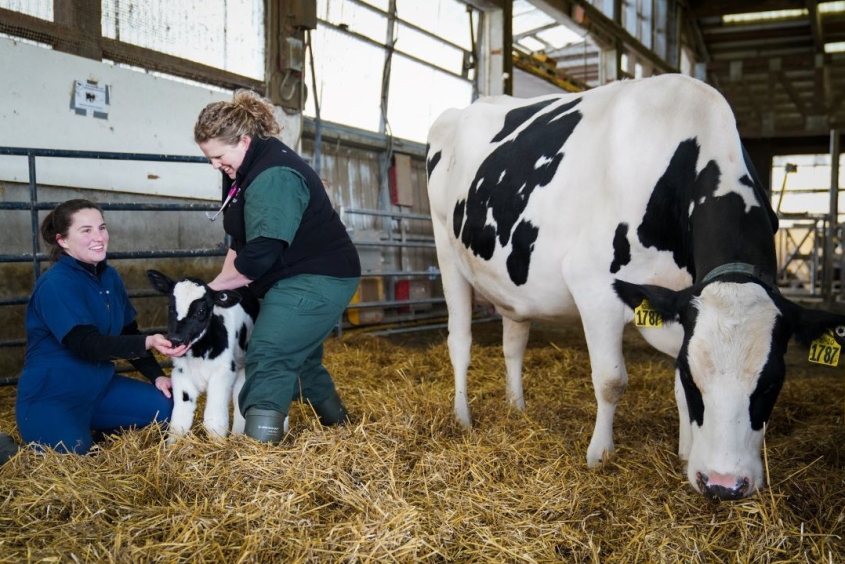Building a Community-Minded Culture
Each member of our community is important, and we aim to strengthen the individuals, the organization they create, and the greater community beyond our college. Achieving all of our goals depends on having a successful and productive college community. To build on recent progress in community support, we will:
Engage with the CVM community
- Focus college events on community-building programming that fosters connections between groups and teams across the college, and the sharing of knowledge and personal experiences.
- Establish a committee to train hiring managers and search committees in inclusive recruitment principles and best hiring practices for staff and faculty with the goal of increasing the diversity and breadth of our applicant pools.
- Create an annual report on the success of our diversity, equity, inclusion and well-being support initiatives, and adjust programming as needed.
Engage with the greater community
- Sustain and expand our K-12 programs to support the educational needs in the broader community and create ties that can lead to future employment, study or careers related to our missions. Currently, many college faculty and staff already provide education and engaged learning opportunities through K-12 school outreach and educational programs. We will evaluate current K-12 school outreach efforts and recommend new programs or summer courses to introduce careers in veterinary medicine, public health and biomedical sciences, focusing on schools with limited access to resources on these topics. We will prioritize programs that include opportunities for participation by CVM students.
- Partner with NY FarmNet, eCornell and Rural Minds to develop an online course aimed at veterinary students, veterinarians and the greater rural community to provide a high-level overview of mental-health issues in rural America and elevate effective support strategies and resources for mitigating them.
- Use hands-on, individual animal-based teaching resources to support international relationships, including the Hong Kong Jockey Club College of Veterinary Medicine and Life Sciences.
- Through the work of the Maddie’s Shelter Medicine Program®, Small Animal Community Practice and related programs, increase accessibility of our veterinary clinical services to underserved communities through pricing mechanisms, access to transportation, overcoming language barriers, and promoting cultural competency through educational programs.
- In partnership with state, federal and local agencies, build resilience to climate change in public health and agricultural production through research and extension projects.



